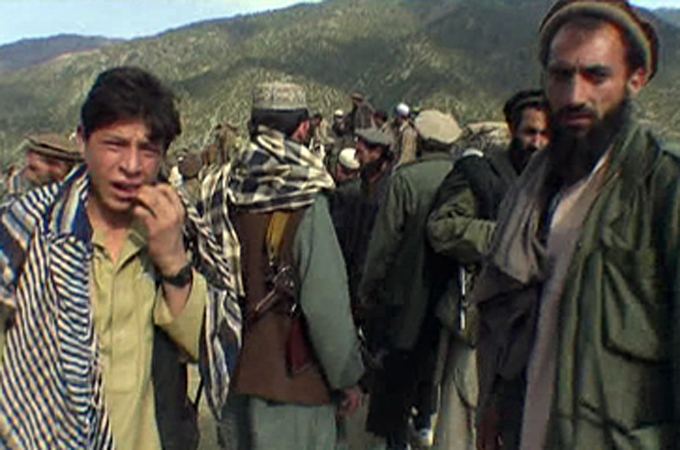Taliban chief rejects peace talks
Mullah Omar says negotiations will not be possible until all foreign troops leave Afghanistan.

 |
| The Afghan Taliban remain opposed to peace talks as long as foreign troops operate in the country |
The leader of the Afghan Taliban has said the group remains opposed to peace talks despite slow progress toward reconciliation.
In a statement issued on Monday, Mullah Mohammad Omar reiterated that negotiations would not be possible until all foreign troops – now at about 150,000 – leave Afghanistan, labeling talk of negotiations “mere propaganda.”
“The cunning enemy which has occupied our country is trying, on the one hand, to expand its military operations … and, on the other hand, wants to throw dust in the eyes of the people by spreading the rumors of negotiation,” Omar said in a statement.
The statement comes four days before Nato leaders are to gather for a summit in Lisbon, the Portuguese capital, where Afghanistan will be the top of the agenda.
It also comes after Nato forces suffered their worst losses in months amid an increase in violence in the conflict-ridden country.
Hamid Karzai, the Afghan president, has included eventual talks with the Taliban as part of a wider reconciliation plan but Afghan and US officials have played down unconfirmed reports about talks with high-level fighters, saying any contacts have only been preliminary.
Negotiated settlement
Violence across Afghanistan was already at its worst since the Taliban were ousted by US-backed Afghan forces in late 2001 but a dramatic increase in attacks in the past four days stands as a strong message for Nato leaders.
Military and civilian casualties are at record levels and while both sides have been claiming recent success on the battlefield, there is growing acceptance of the need for a negotiated settlement to the conflict.
Karzai’s peace plan also will be addressed in Lisbon, with Afghanistan setting the ambitious target of 2014 for its forces to take over complete security responsibility.
Meanwhile, Barack Obama, the US president, plans to begin a gradual drawdown of US forces from July 2011. The chance of talks and the recent increase in violence will, according to analysts, be a factors of consideration when he reviews his Afghanistan war strategy next month.
In an interview with the Washington Post newspaper, Karzai indicated that he thought it was time for foreign troops to begin cutting back on operations and reducing their visibility.
The interview also underscored his often uneasy relationship with the US government which Karzai described as “grudging”.
In the interview, Karzai said the United States should end U.S. Special Operations forces night raids, a part of the counter-insurgency strategy developed by General David Petraeus, saying they are a serious cause of Afghan disenchantment with Nato and with his own government.
However, Hillary Clinton, the secretary of state, said she shared Karzai’s concerns but saw the raids as necessary.